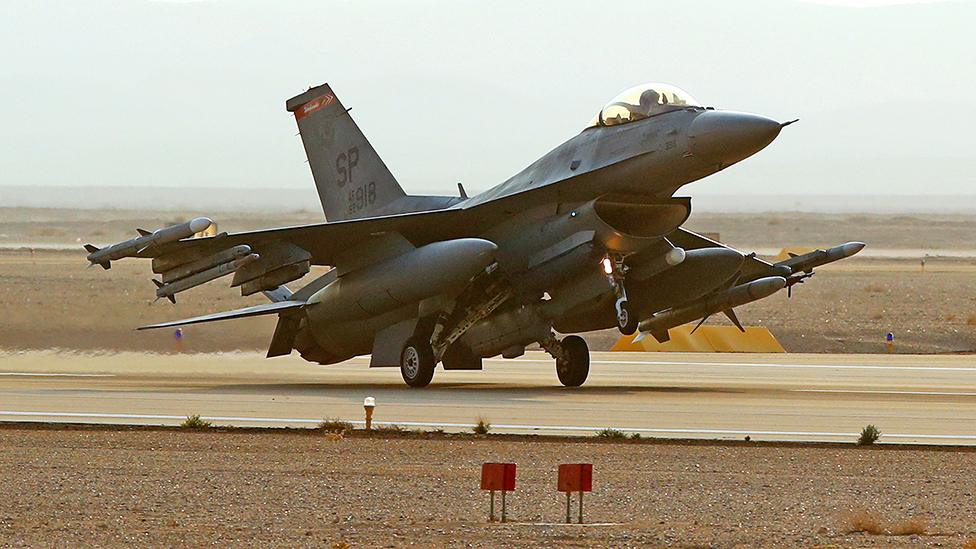Spy balloons: The unanswered questions about flying objects
- Published
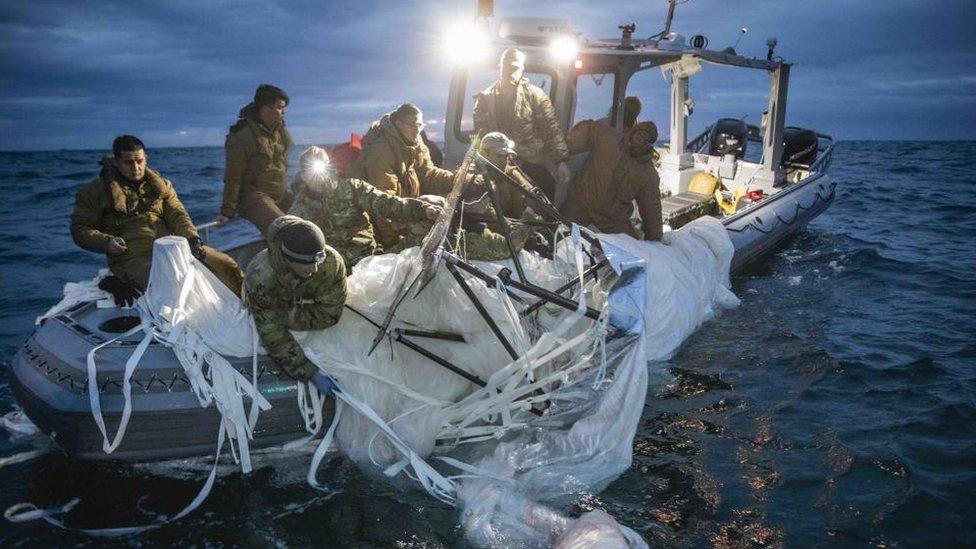
US ships and divers are still searching for debris from a balloon shot down off the South Carolina coast
US forces have shot down four aerial objects over North American skies this month, raising more questions than answers about what's happening high above earth.
At the end of a surreal weekend, news of the last mystery aircraft being shot down emerged on Sunday night.
It was the third unidentified flying object blown out of the sky in three days, and a week after a balloon equipped with antennae traversed the US before it too was blasted to bits.
The huge intelligence apparatus of the world's biggest superpower is now trying to make sense of it all.
Here are the key questions they will be looking at.
What kind of objects are these latest ones?
The three mystery aircraft shot down in the last few days are very different in size and shape to the large balloon.
Object one - car sized
This was "the size of a small car" and had been flying 40,000ft (12,000m) in the air as it travelled in the direction of the North Pole without any system of propulsion or control.
It was shot down over Alaska last Friday, 10 February, out of an "abundance of caution" said officials, because it posed a threat to civilian aircraft.
Object two - cylindrical
This was described as "cylindrical" in shape and first spotted over Canada's Yukon territory on Friday evening. It was shot down on Saturday.
Object three - octagonal
This was first spotted on Saturday afternoon just north of the US border in Canada but fighter jets scrambled from Oregon were unable to maintain detection of it as the sun set.
The following day it was picked up again in Montana, tracked across Wisconsin and shot down above Lake Huron in Michigan.
Officials have not publicly commented on its shape but one speaking anonymously said it had an "octagonal structure" with no visible sensors.
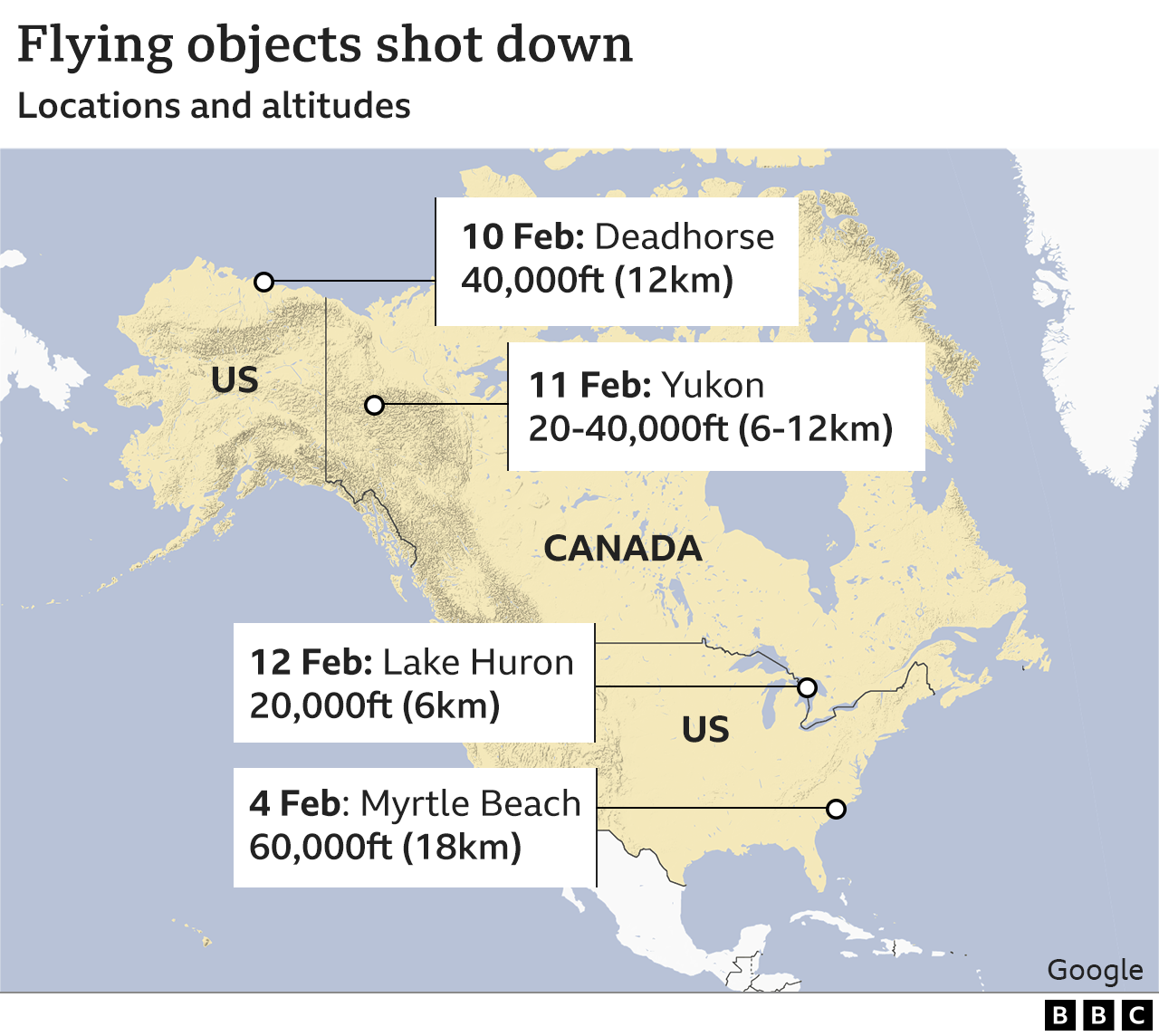
What was the first balloon really doing?
It was first spotted on 28 January in Alaska, then Montana and later shot down off the east coast on 4 February. The US Pentagon said it was a Chinese spy balloon flying at about 60,000 feet.
Fragments of the balloon landed across seven miles of water and went down 47 feet below the surface.
Recovery crews have been collecting some debris and are using boats and mini-subs to reach further equipment.

US officials have described the balloon in some detail - 60m (200ft) tall and complete with multiple antennas, solar panels and surveillance equipment - but said nothing about what kind of data they believe it was collecting.
The lack of information has provoked criticism from both major parties.
"I have real concerns about why the administration is not being more forthcoming with everything that it knows," said congressman Jim Himes of the House Intelligence Committee.
How many flying objects are there?
These are not the only four objects to make the news in the last couple of weeks.
A balloon was spotted by Colombia's air force and it is believed to have flown across several Latin American countries.
The question is whether there are actually more objects up there or whether improved detection methods are the reason.
After the first balloon was spotted, the radar operated by the North American Aerospace Defense Command (NORAD) was enhanced to pick up on smaller objects.
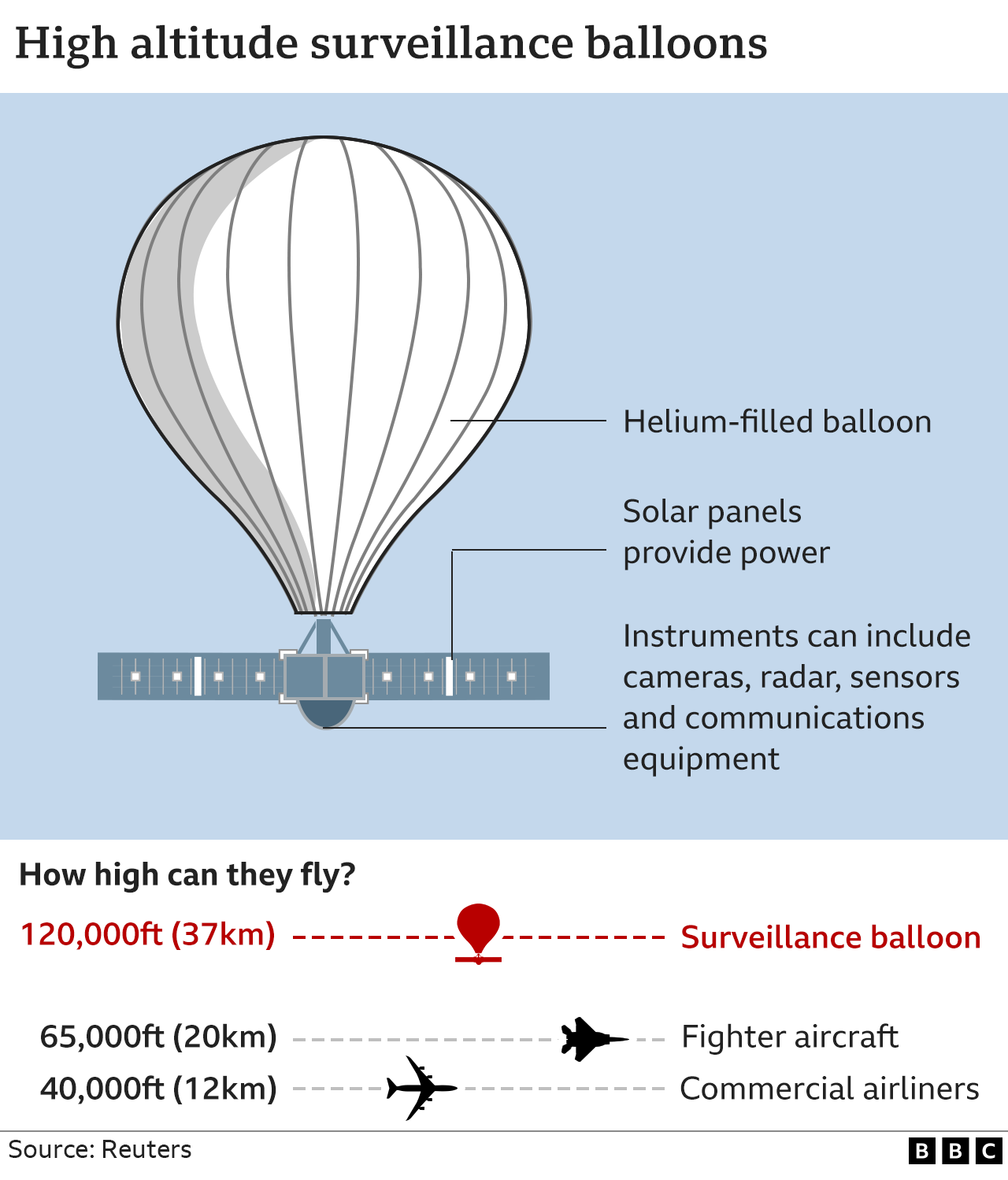
As one US official put it to Reuters,"we're definitely looking harder now".
The increase in sightings pre-dates the present saga - a report in January by the US military revealed hundreds of new cases of flying objects in American airspace.
There were 366 new reported sightings in 2022 compared with the previous year. Of these 163 were balloons, 26 were drones and six were described as clutter.
Is this really all to do with China?
Relations between the two countries have deteriorated since the US accused China of using the balloon to spy.
US Secretary of State Antony Blinken even cancelled a trip to Beijing.
The US has linked the balloon it shot down in the Atlantic Ocean to a global surveillance programme it says China is behind, putting other countries on alert.
The UK Government said it will do "whatever it takes" to keep the country safe from the threat of spy balloons.
China has accepted responsibility for that first balloon and the one spotted in Latin America but denied they were used for spying, saying they were weather monitoring devices blown astray.
The balloon's destruction in the US "seriously violated international practice," Beijing said, adding that it reserved the right "to use necessary means to deal with similar situations".
It has now accused the US of 10 incursions into Chinese airspace.
At a press conference on Sunday night, the US Air Force commander said he could not explain what the three most recent objects were, how they stayed aloft, or where they were from.
A senior US official told ABC News that these three aircraft were most likely to be weather devices and not surveillance balloons.
- Published3 February 2023
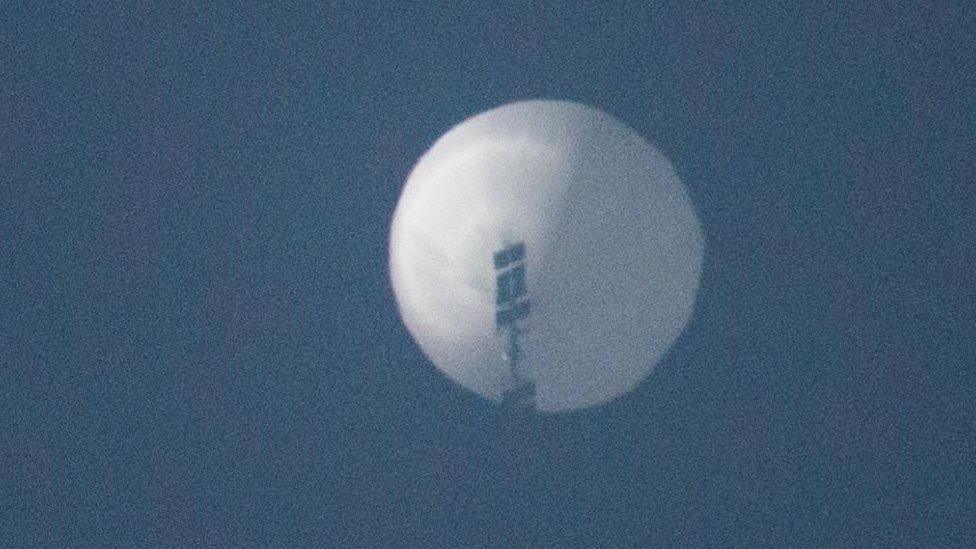
- Published12 February 2023

- Published13 February 2023
